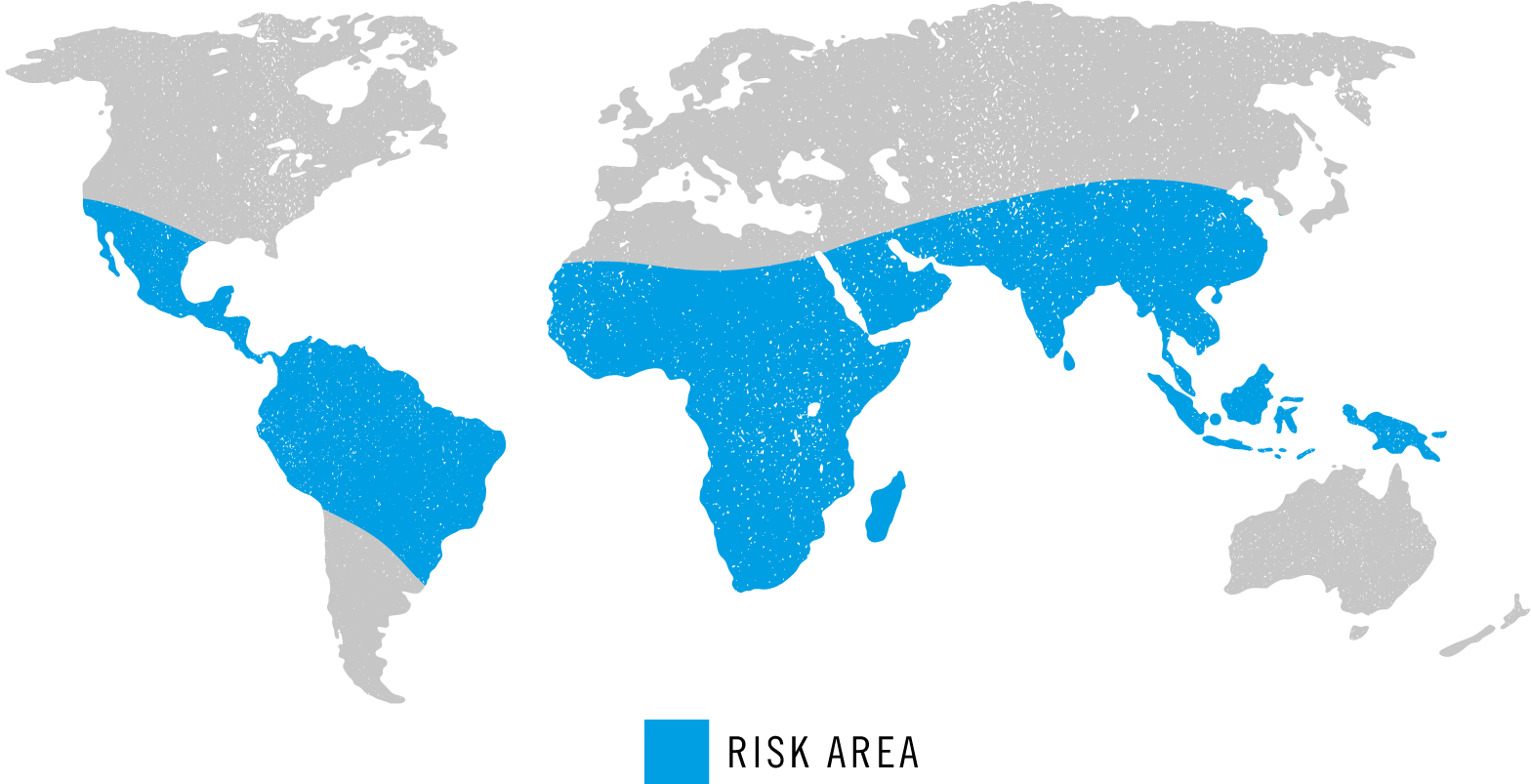Most Dengue infections occur in SE Asia, South and Central America, Mexico, Africa, Indian sub-continent, Hawaii and the Pacific, however Dengue is now emerging outside of the tropics and infections have now been reported in France and Spain as well as other countries across Europe.
Urban areas tend to be higher risk than rural areas as the Dengue carrying mosquito likes to breed in stagnant water such as drainpipes, old tyres, cans and flowerpots that collect rain.
Dengue Fever Symptoms
If infected with Dengue Fever, symptoms include a high fever, sometimes known as ‘breakbone fever’ as it feels like your bones are breaking, plus a headache, possibly nausea and vomiting. Three to five days later a rash may appear on your trunk. It can make you feel very unwell and there is no specific treatment. If Dengue is caught for a second time, the symptoms can be more serious and potentially fatal in some. The only way to diagnose Dengue Fever is to have a blood test, therefore if you suffer flu like symptoms while abroad or after returning home, seek medical advice urgently.
QDENGA Dengue Fever Vaccine
A Dengue fever vaccination can be considered by travellers who have experienced a previous confirmed Dengue fever infection in the past. The vaccine schedule is 2 injections 3 months apart. If it is not possible to complete the course prior to travel then one dose of the Dengue fever vaccine QDENGA can be given and will provide approximately 81% protection against all serotypes of Dengue infection until the second dose of the Dengue fever vaccine is given.
| AGE OF USE | DOSES REQUIRED | SCHEDULE | TIME BEFORE TRAVEL | BOOSTER REQUIRED |
| 4 Years + | 2 | 0, 3 months | Last dose up to day before travel* | Not yet established |
*Vaccines work best if given time to become active. The QDENGA vaccine can be given up to the day before travel and will provide some cover. Contact us to book at appointment at your nearest Nomad travel health clinic.
Risk Areas

